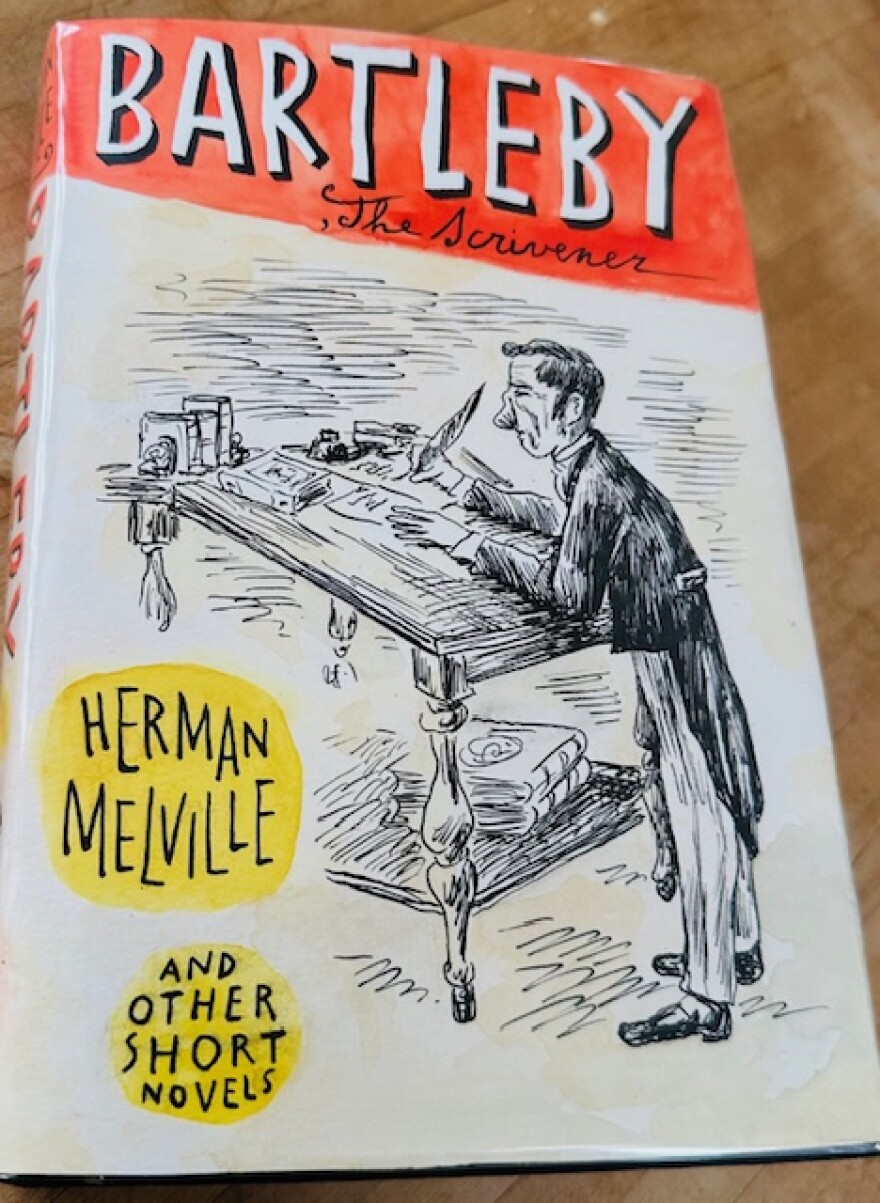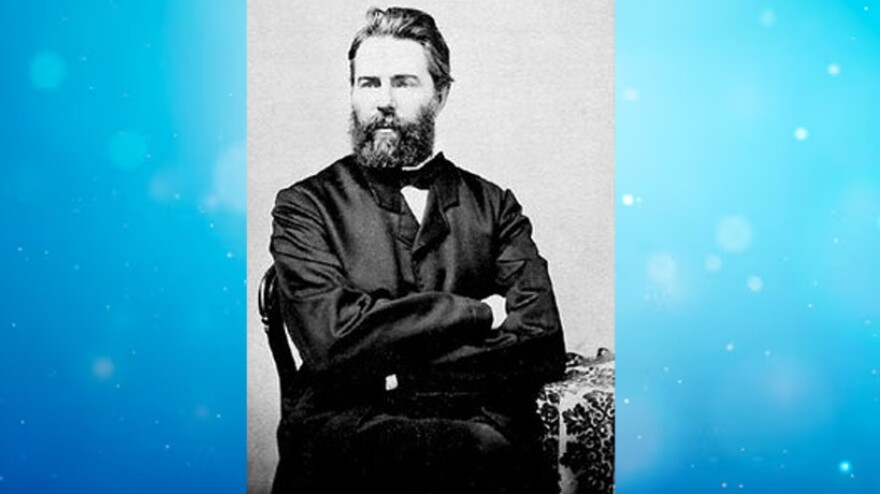On this episode of The Lonely Voice podcast, hosts Yvette Benavides and Peter Orner welcome back guest Ricardo Siri—the internationally renowned cartoonist who is known professionally as Liniers.
In a past episode of The Lonely Voice, they discussed "Funes the Memorious" and "The South" by Jorge Luis Borges.
They join forces again this time to tackle—and celebrate—the beloved and enigmatic story, “Bartleby, the Scrivener: A Story of Wall Street” by Herman Melville.

"Bartleby, the Scrivener: A Story of Wall Street" by Herman Melville
Many of us encounter "Bartleby, the Scrivener" at some point in anthologies of classic stories or in literature classes in college.
The story was first published in 1853 and involves a lawyer and his office of scriveners whose idiosyncrasies he can manage. They have quirks and limitations—but predictable ones.
Bartleby joins the ranks of scriveners. And he’s a good worker. But then one day, he begins to refuse his work assignments. He utters the famous line, “I prefer not to” (or variations of that expression). He also refuses to leave the office and refuses to do anything else except stare at the wall or out a window just a few inches from where he stands and remains stationary.
The lawyer depends on predictability, on managing the proclivities of his workers who are more or less productive—and avoiding confrontation.
But Bartleby? What can he do about Bartleby? What reaction does the protracted impasse elicit for the lawyer—and for the rest of us?
And the tension builds as Bartleby ends up in a prison. We see the ways the unnamed lawyer must contend with his emotions about this development. The story becomes something of a commentary about the ways society responds to the plight of the individual in need. It is a timeless story with a lot of resonance for today.

Ricardo Siri (Liniers)
Liniers is an Argentine cartoonist whose work has been featured on the cover of The New Yorker. He has had a daily cartoon strip, Macanudo, featured in the Argentine newspaper La Nación for over 20 years and in U.S. newspapers since 2018.
Fantagraphics publishes Liners’ comic strips in new English-language collections.
While his legions of fans might know that Liniers has also collaborated musically—with Gustavo Santaolalla, Jorge Drexler, and Kevin Johansen, among others, (and his tributes to the late Gabo Ferro in 2020 are unforgettable) he’s also quite the reader of literary fiction. Authors like Jorge Luis Borges captured his imagination from a very young age.
He brings insight, intelligence, warmth and humor to our discussions of classic stories on The Lonely Voice.

More about Ricardo Siri (Liniers):
Born in Buenos Aires in 1973, Ricardo Siri became a daily cartoonist at the age of 28 almost by accident, when other Argentine newspaper cartoonists had decamped to Spain at the nadir of a recession. He saw his role on the last page of La Nación as offering a respite from dour news, but the strip’s whimsy and humanity quickly led Macanudo to expand to papers across Latin America, and eventually beyond to Europe and North America. Three of Liniers' children's books have been published in the US, with Good Night, Planet, winning the comics industry Eisner Award for Best Publication for Early Readers in 2018. He currently lives in Vermont.




